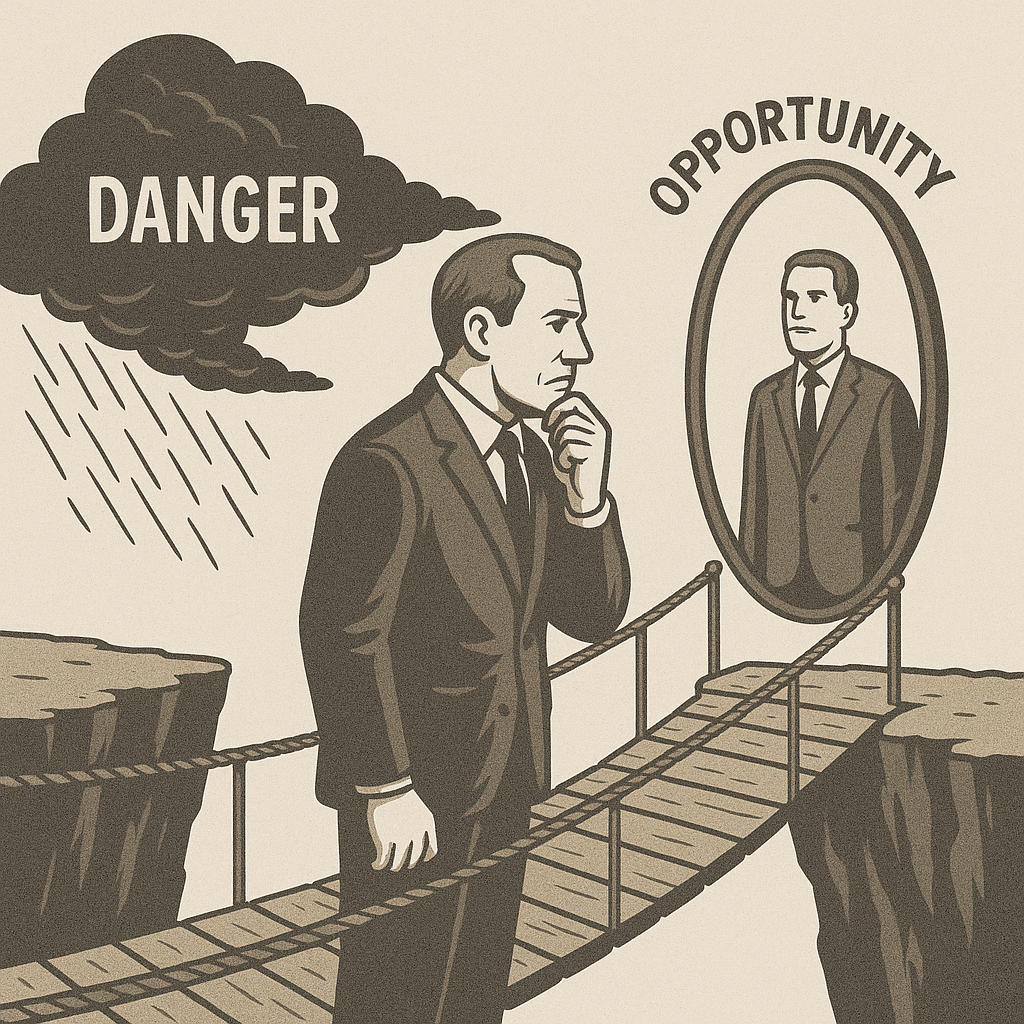Most—if not all—of the grand challenges of our time are human-driven or, more precisely, heavily influenced by those at the helm. Armed conflicts, geopolitical tensions, economic inequality, societal polarization, and climate change all have a human factor behind them. Therefore, the quality of leadership and the choices leaders make determine how these challenges are addressed, ultimately shaping the destiny of present and future generations.
These choices either create or destroy public value. As Nobel Prize winners Daron Acemoglu and James Robinson compellingly highlight in their remarkable book Why Nations Fail, “poor countries are poor because those who have power make choices that create poverty.” The same logic can be applied to business.

This evolution transcends the desire for modern like-culture or external gratification, refocusing their efforts on serving the long-term success of their organizations. Yet this level of managerial maturity remains the exception rather than the rule, both in politics and business. The prevailing norm is what can be described as unconscious incompetence.
Unconscious Incompetence
An unconsciously incompetent manager is someone who lacks the knowledge, skills, and attitudes required for their role, yet remains overly confident in their qualifications. This can be a CEO, a military commander, or even a president of a country. The higher the position held by such a manager, the greater the danger they pose and the more severe the consequences of their actions may be. For example, a CEO may destroy employee engagement and diminish company value, a military commander may lead their army to defeat, and a president may drive a nation into failure.
The leader doesn’t realize they lack key skills and may overestimate their abilities, leading to blind spots in decision-making.
The leader becomes aware of their limitations, which opens the door for learning and growth.
The leader can apply new skills effectively, though it still requires focus and effort.
The leader performs with expertise naturally and intuitively, enabling them to coach others and lead with confidence.
Due to their lack of self-awareness and being driven by extrinsic markers of success—such as power, money, status, or popularity—unconsciously incompetent managers often surround themselves with even weaker team members—those who merely echo their views rather than present an honest assessment of reality. Ultimately, the entire organization—lacking a proper institutionally resilient framework—resembles the Titanic.
Leap in the Dark
The higher the position of an unconsciously incompetent manager, the more difficult it becomes for them to recognize the gap in their competence. Confronted with challenges and human fears, many choose to silence their inner voice and avoid meaningful self-reflection—until a crisis eventually forces them to confront the big questions. Such crises often act as catalysts for purposeful moments, described in Chinese philosophy as embodying both “danger” and “opportunity.”
The “danger” lies in the choice to reject reality, remaining trapped in a self-constructed world and an incompetence bubble. The “opportunity,” by contrast, lies in accepting their reflection in an imperfect mirror, committing to change, and ultimately transforming into an unconsciously competent, purposeful leader.
Although crises can make managers more open to acknowledging their incompetence, they—like most people—often go to great lengths to preserve and elevate their status, typically opting for the “danger.” They naturally gravitate toward comfort and will do almost anything to avoid failure in their own eyes—and the psychological pain that comes with it. This avoidance, however, often leads to far greater failures and deeper pain for both themselves and their organizations.

Choosing the “opportunity” is far rarer. It demands not only effort but also character, courage, and a strong moral compass. It marks a shift from one level of self-development to the next—something most leaders only attempt when no other option remains and when facing the pain becomes cheaper than continuing to deny it.
When Ego Leads
When observing today’s political or business leadership, one can often recognize unconscious incompetence in certain individuals. However, just as truth tends to be tribal, perceptions of management competence and moral integrity follow a similar pattern. What is considered professional management practice in the United States may be viewed quite differently in India. These differences in judgment apply not only across cultures but also within countries, regions, and even across generations.
What remains universal, however, is the human ego. The most profound source of stress for the ego is the collapse of its illusion of control and power. This is why staying grounded is essential for any leader. It becomes especially important as they climb the organizational ladder—their ego inflates and they tend to feel more threatened by information that proves them wrong. This perceived threat to status can lead to a dangerous temptation to deny reality altogether—posing a serious risk to themselves and their organization.
Institutionalizing the Path
The institutionalization of at least three key conditions that guide managers toward management competencies and self-actualization is essential:
First, the implementation of regular, honest, and unbiased feedback is fundamental. This serves as a key tool to help them see what they cannot—or do not want to—see. Such feedback enables them to navigate their hardships, evolve through struggle from lower to higher stages of development and demonstrate the capacity to lead ongoing transformation within themselves and their organizations. Most importantly, confronting unpleasant truths serves for them a noble purpose: the evolution of consciousness and the burning of their ego.
Second, managers need a cadence for continuous learning of role-relevant competencies based on identified gaps. Because there is always a room for growth, learning must become a core aspect of modern management hygiene. A leadership mindset that prioritizes learning over knowing fosters an environment where teams are encouraged to adopt humility and curiosity. In this context, establishing ongoing executive coaching for top leaders can be an effective way to institutionalize both the rhythm of continuous learning and a safe space for them to shift their perspectives.
Third, there must be an uncompromising presence of checks and balances. Unlimited power without institutional constraints—whether the absence of regular elections for a politician or inadequate oversight of a CEO by a supervisory board—inevitably leads to strategic failures and, in some cases, disaster.
The infamous cases of Enron, Lehman Brothers, and Theranos demonstrate that without strong institutional control, the question is not if catastrophe will strike, but when and how severe the consequences will be.
Conclusion
With rapidly evolving military technologies, expanding nuclear arsenals, the polarizing influence of social networks, and a collapsing world order unfolding in real time, it is critical to recognize that unconsciously incompetent individuals in positions of power represent a profound grand challenge in themselves. In response, it becomes essential to institutionalize conditions that facilitate their transformation—from unconscious incompetence to conscious incompetence—while establishing universal standards to guide this process.
One of the core barriers to achieving conscious competence is their ego. Therefore, institutional support is necessary to help managers evolve toward deeper levels of self-awareness, self-actualization, and ultimately, higher stages of personal and leadership development. Transitioning from merely declaring a servant or learning mindset to truly embodying it requires more than personal will—it demands systemic incentives that exert sufficient pressure on those in power to drive meaningful and sustained change.

